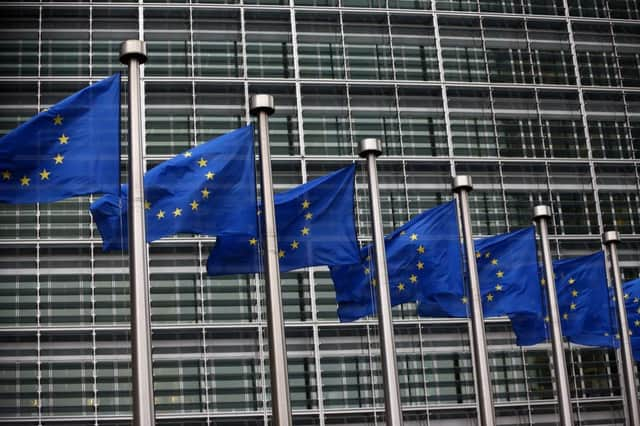Brussels left wondering why UK pressed Brexit ejector seat - Chris McCall


The Berlaymont building is a landmark that many Scots will instinctively recognise, but few could name. It is a familiar backdrop beloved by broadcast journalists, used in countless TV reports stretching back decades. It has become a visual shorthand for Brussels and everything it represents.
This gigantic slab of late 1960s modernity is the home of the European Commission – the executive wing of the European Union – and the beating heart of the entire European project.
Advertisement
Hide AdAdvertisement
Hide AdThe Berlaymont may lack the gothic grandeur of Westminster or the design flourishes of Holyrood, but remains an impressive sight. The complex gives off an air of quiet authority – much like the hundreds of civil servants who work across its 13 floors.
It was opened six years before the UK joined what was then called the European Community and it will stand long after Brexit is finalised.
When I visited for the first time last week, as a guest of the now-closed European Commission office in Scotland, the Brexit train had long since departed the platform. The UK was coming out of the EU and everyone I spoke to accepted that fact.
No one naively believed that perhaps the whole thing could still be called off. Instead, there was a calm anticipation of what now lies ahead – 11 months of intensive negotiations on everything from security arrangements to fishing rights.
If prizes were awarded for political deal-making, then the EU’s trophy cabinet would be bulging. You can’t forge a 28-state alliance without learning a trick or two when it comes to sitting round a conference table.
Reaching agreements on incredibly complex issues is what the EU does. But that doesn’t mean it’s looking to give the UK a kicking for daring to rip up its membership card.
A sense of sadness hung over the Berlaymont. Collectively, no-one doubts the EU will get the job done, and that the institution will continue to thrive, come what may. But individually there is genuine regret that Brexit is happening.
“A great shame,” was a phrase I heard more than once when the subject of the UK’s departure was raised.
Advertisement
Hide AdAdvertisement
Hide AdThose who work in Berlaymont believe, fundamentally, that the EU is a force for good. Member states might disagree on the route, but they all agree on the destination – peace and prosperity across the continent.
They knew the UK had complaints about certain things. But it was presumed they could be worked out, in time. Nothing seemed so grave that pushing the ejector button was the only option left.
Some regret that the EU did not take a more proactive stance ahead of the 2016 referendum. The EU decided it was an internal matter for the UK and stood back.
Brexit was an earthquake that few in the Berlaymont predicted. But the building will stand firm, regardless of the aftershocks.
